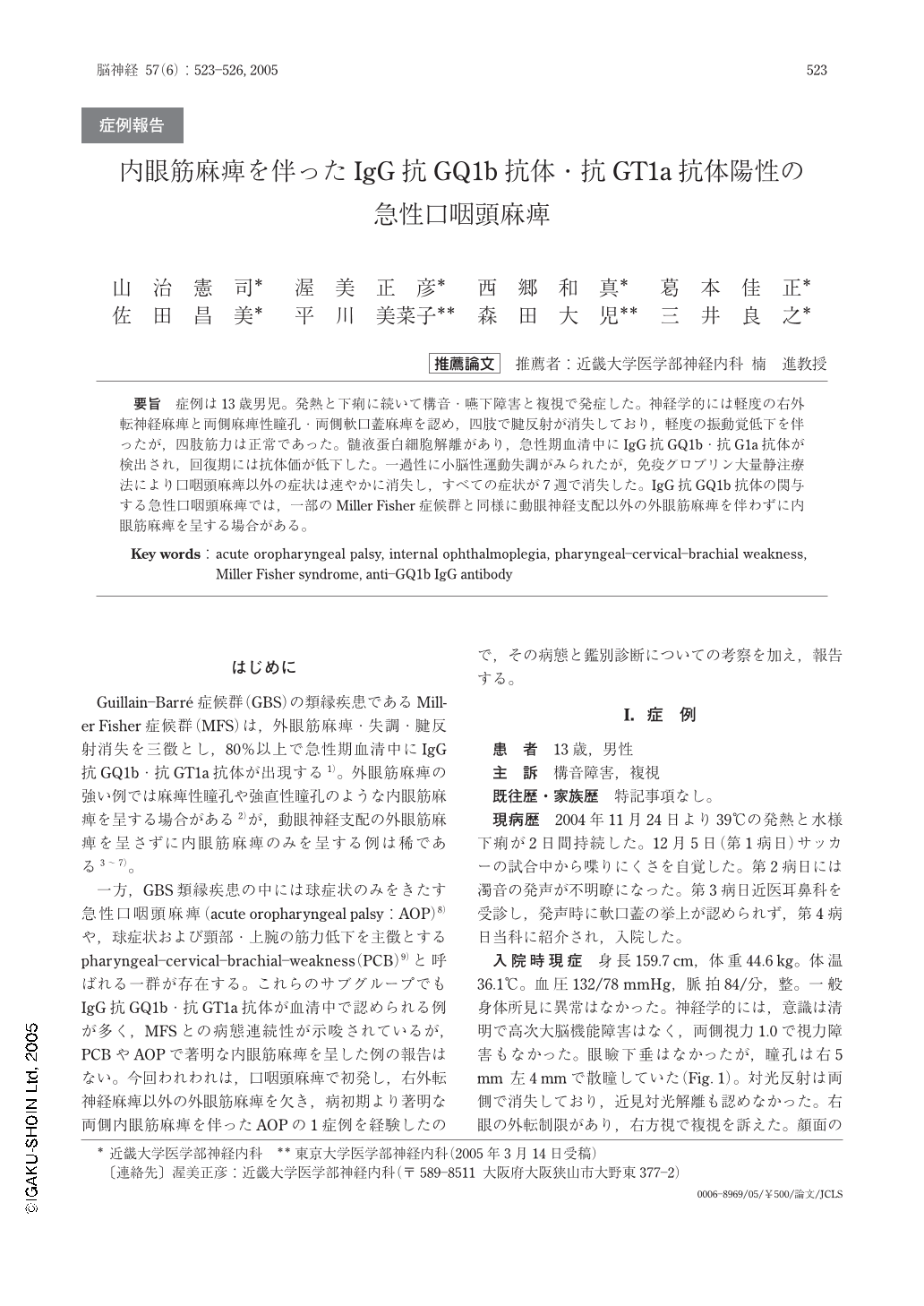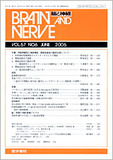Japanese
English
- 有料閲覧
- Abstract 文献概要
- 1ページ目 Look Inside
要旨 症例は13歳男児。発熱と下痢に続いて構音・嚥下障害と複視で発症した。神経学的には軽度の右外転神経麻痺と両側麻痺性瞳孔・両側軟口蓋麻痺を認め,四肢で腱反射が消失しており,軽度の振動覚低下を伴ったが,四肢筋力は正常であった。髄液蛋白細胞解離があり,急性期血清中にIgG抗GQ1b・抗G1a抗体が検出され,回復期には抗体価が低下した。一過性に小脳性運動失調がみられたが,免疫グロブリン大量静注療法により口咽頭麻痺以外の症状は速やかに消失し,すべての症状が7週で消失した。IgG抗GQ1b抗体の関与する急性口咽頭麻痺では,一部のMiller Fisher症候群と同様に動眼神経支配以外の外眼筋麻痺を伴わずに内眼筋麻痺を呈する場合がある。
Abstract
A patient with acute oropharyngeal palsy associated with internal ophthalmoplegia was reported. A 13-year-old boy had fever and diarrhea for two days. Ten days after resolution of these symptoms, he noticed difficulty in speaking (day 1). Neurological findings on day 4 included bilateral mydriasis, right abducens nerve palsy, nasal voice with absent pharyngeal reflex. Although superficial sensation was preserved, vibratory sensation was reduced in distal limbs. Tendon reflexes were generally absent. Neither ataxia nor dysautonomia was seen. Serum anti-glycolipid antibody assay on day 4 disclosed elevated IgG antibodies to GQ1b and GT1a. His cerebrospinal fluid on day 21 contained 6 mononuclear cells/ml with 137mg/dl of total protein. Nerve conduction study on day 5 showed minimal sensory nerve involvement. Quantitative sudomotor axon reflex test was normal in the lower extremities. Low dose pilocarpine eyedrops dilated his pupils. Although mild cerebellar-like ataxia appeared on day 5, intravenous immunoglobulin (0.4g/kg/day for four days) rapidly improved his neurological abnormalities. IgG anti-GQ1b antibody might contribute not only oropharyngeal weakness but also internal ophthalmoplegia in this patient.
(Received : March 14, 2005)

Copyright © 2005, Igaku-Shoin Ltd. All rights reserved.


